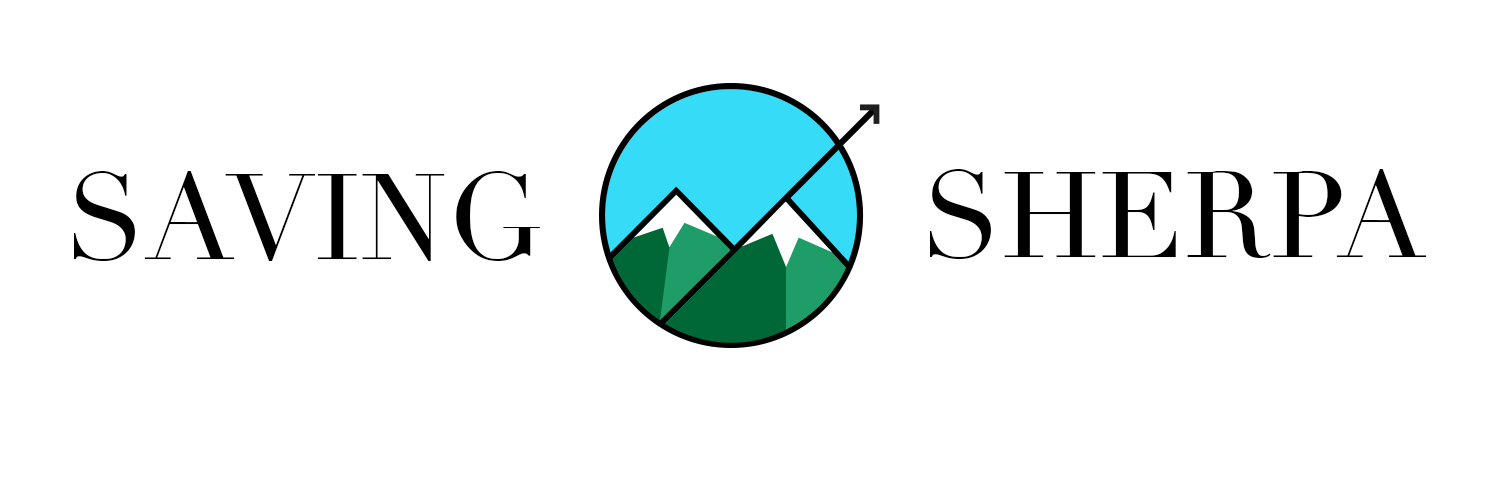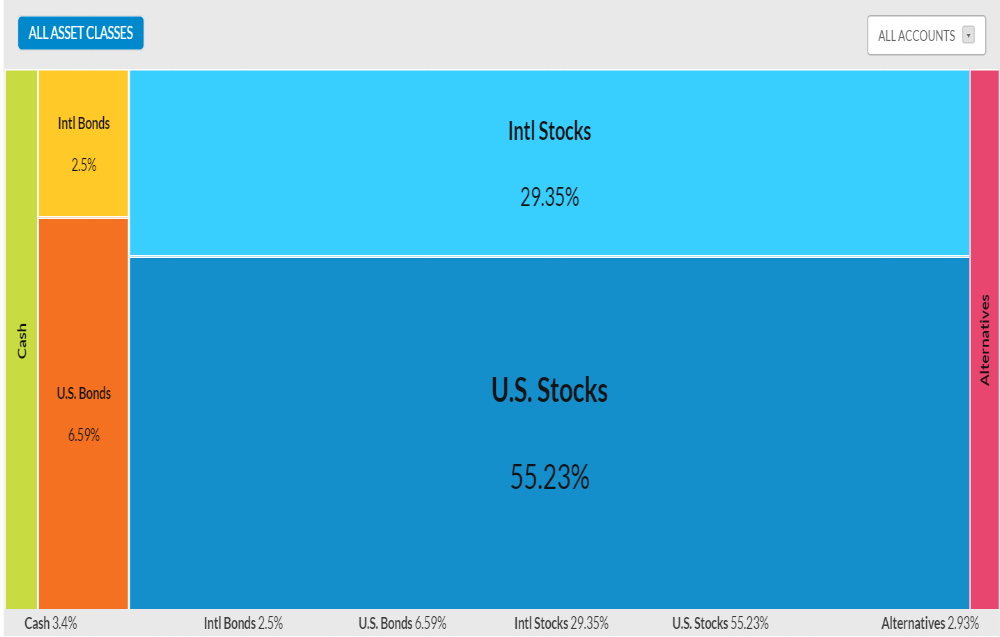Buying Happiness
Finding the root of your happiness is a big part of financial independence. Once you isolate what truly makes you happy, you can then focus your spending on necessities and those areas that truly make you happy then cut out all the rest. The only reason I am so focused on financial independence is to optimize my happiness. I used a technique like the 5 Whys which is generally used for root cause analysis. This is where you take an event and ask “why” until you come to the root of why this event happened.
So here is my example:
1. What makes me truly happy?... Spending time with friends, traveling, backpacking, and volunteering.
2. What do I need to be able to do this?... I need time.
3. Why don’t I have enough time?... I have to return to work and have limited vacation days.
4. Why do you have to work?... I don’t have enough passive income to support myself.
5. How can I stop relying on work?... Invest enough to become financially independent
In my case becoming financially independent = true happiness and therefore money can buy happiness.
Imagine if instead of spending a weekend with a buddy you could spend a month. Not only would it be a lot more fun, but it would actually be a lot cheaper. Say you buy a plane ticket for $350 and then because you’re only in for the weekend you hit up five of their favorite restaurants for a total of $100. Take that $450 and divide by the three days and it comes out to be $150 per day. If you had a month you would still have the same plane costs ($350) and probably still eat at those five restaurants ($100) but then the rest of the time you would just buy groceries for maybe $40 a week. If we add in the $160 for groceries it comes to $610 and that spread across thirty days comes out to just over $20 per day. This becomes an even more important aspect when international travel and hotels are involved.
One of the things I want to do when I become financially independent is travel and temporarily live in other countries. Spreading $3,000 in flights over a 10 day period plus hotels is the type of expenses that most people have to save up for a year or more to afford. If you had six months your airline price per day would drop from $300 a day to $16 a day and instead of $80 a day for a subpar hotel you could rent a home for $700 a month or $23.33 a day. So you just dropped your expense from $380 a day to $39.33 a day. At that price a trip like this is sustainable as long as you would like to stay. That was just a generic example and it's probably not realistic right? Well how about a very real stay at a resort style furnished apartment that's a 10 minute walk from world class beaches and scenery for $25 a day that includes round trip airfare? At $25 a day or $750 a month I bet this fantasy life is much more believable than most would think. Take a look at the picture below.
Note the exchange to US dollars is over 35:1.
ome people may not have any interest in traveling but maybe they want to try a career that has the potential to fail miserably or doesn’t pay a fraction of their current job. Maybe they have always wanted to take some time off to learn how to play an instrument or join a band. Maybe they just want to be able to spend every day with their kids and really take advantage of those summer months away from school. The point is the freedom and flexibility that comes from not having a reliance on money. For me an abundance of money doesn’t matter to me but money is a necessary evil.
A lot of people think that it’s greedy to save up the amount of money that it takes to retire at a really young age but I don’t look at it that way. The most valuable asset we can give someone is our time and not our money. I currently can only spend a couple weeks working at an orphanage in Mexico that I support and would love a few months of my time to teach and provide labor but I can’t just be unemployed. So while it is true that I could donate a little more money, I don’t so that in a few years I can give more time. Instead of showering your children with gifts in a house that’s too big what if you just saved the money so that you could spend months at a time with them? When they look back on their youth are they going to have old toys they have to put on craigslist or a photo album of countless camping trips?
Obsessing over money is a dangerous thing but not being conscious of it is irresponsible. I watch my friends and family miss out on so many opportunities because they have to work and it happens to me all the time. I can’t wait to be free of a schedule so that I can say yes to an invitation from a friend, to stop missing birthday parties, and stop feeling rushed to see friends on the holidays. That is what makes me happy and I’ll gladly accept the lifestyle that involves a little cutting back for 20 years if it means that I’ll have the second half of my life to live on my own terms, to never miss another moment, to help others constantly, to leave no corner of the earth undiscovered, to be free.
The old saying “you can’t buy happiness” just isn’t true. The problem is most people are just going to the wrong place to purchase it. Most people make the decision to purchase “happiness” aka goods and services they simply don’t need and will have trouble even remembering less than a year or maybe even a week after purchasing. I on the other hand choose to withhold this false and temporary “happiness” and instead will go all in to purchase true happiness through financial freedom. Misunderstanding what truly makes us happy is one problem but our biggest problem may be the psychological gap we create between something as trivial as using a coupon and meaningful change to our life.
Today I sold my motorcycle and I stressed out so much over an offer $200 below my asking price of $3200 which in reality is only 6.25%. Of course 6.25% matters as it closely resembles the earnings we need from our investments to meet retirement goals but the point is it doesn’t only matter on $3200 transactions. I shouldn’t have stressed anymore over this than I should from restructuring my cable package to go from $80 to $75 a month or even using a 10% off coupon at the grocery store (these are the trivial ones most people don't give enough attention!). In reality the mindset to always look for these percentages of savings is more important. I might have something like a vehicle to sell every six years but I make small purchases everyday which will add up to much more costs and savings over the long term. These small decisions are the difference between wealth and debt and sometimes even life and death.
In 2010 37.5% of suicides were tied to external economic factors. Debt has a strong connection to depression and stress. Financial issues are also tied to 45% of divorces which is larger than any other factor that leads to divorce. So are you being greedy by buying your wife a great used bike instead of a new one or are you being responsible and lowering your chances of losing her forever? I believe the facts are heavily in favor of the second scenario.
This all seems very extreme because most people don’t worry about these issues until it’s honestly too late. We only have one life to live and only so much time. How much of it will you spend away from the people and the things you love? Will you look back and be happy with the decision to waste money on things you can’t even remember now instead of creating memories with those who are no longer there to make memories with? It’s not easy by any stretch. If it was everyone would do it, but luckily it is simple and those are two very different adjectives. It is not easy to turn down the prospect of living like everyone else, but it is simple to understand that you have to be smart with your finances in order to achieve a freedom that those others will never have. My main goal is to inspire you to go out to find what really makes you happy and do whatever it takes to increase the amount of time you have available for whatever that may be.
Recap
- Use 5 Whys to discover your true happiness
- Realize the power that time can play for and against you ($25/day International vacays!)
- Understand 10% on a thousand $1 items is the same as 10% on a single $1,000 item
- Use the implications of financial freedom as a motivator to get you focused







